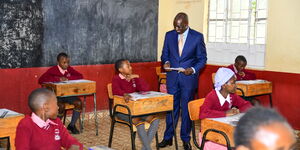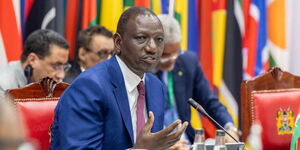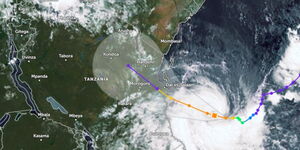President Uhuru Kenyatta has appealed to foreign development partners to support the Kazi Mtaani program with an aim of creating more employment opportunities for the youth.
Speaking during a meeting with four heads of international organizations, the president invited development partners to support initiatives such as Kazi mtaani initiative which directly benefit the youth.
"Kazi Mtaani has not only created gainful employment for thousands of youth but also helped develop their entrepreneurial and financial skills through training," Uhuru stated.
He said that Kenya would continue to raise Africa's voice in global affairs and thanked the UN for the consistent support the country receives in various sectors.
The president held meetings with the Director-General of UNON Zainabu Bangura, UN Resident Coordinator in Kenya Dr. Stephen Jackson, World Bank Country Director for Kenya Keith Hansen and the UN Under-Secretary-General for Operations Atul Khare.
The appeal comes as the government announced the extension of the Kazi mtaani initiative. Initially, the programme was meant to end on March 4, 2021.
The initiative kicked off in July 2020 with the aim of improving hygiene and sanitation in informal settlements as well as helping thousands of youth rendered jobless by the pandemic.
This led to over 280,000 youths being enrolled in the initiative. Among the activities carried out included garbage collection and street cleaning, fumigation and unclogging of drainages, rehabilitation of public facilities such as buildings, access roads, and walkways.
Other activities involved tree growing and preparations of stabilized soil blocks for construction have also prominently featured.
Currently, workers under the programme, operate on two shifts of Cohort A and B, each working for 11 days a month. Workers earn Kshs455 per day while the supervisors earn Kshs505 per day.
This has enabled the youth to earn a living as well as receive extensive life skills such as setting up businesses, HIV/Aids prevention, mental health and counseling, and basic skills in masonry and carpentry.












